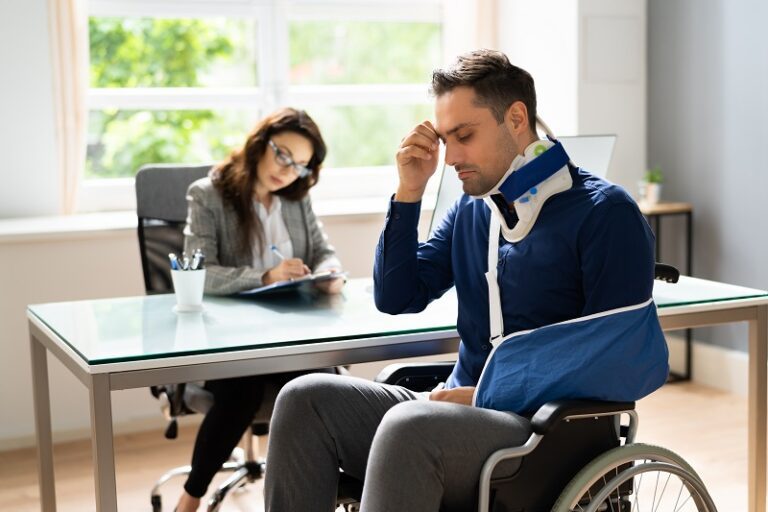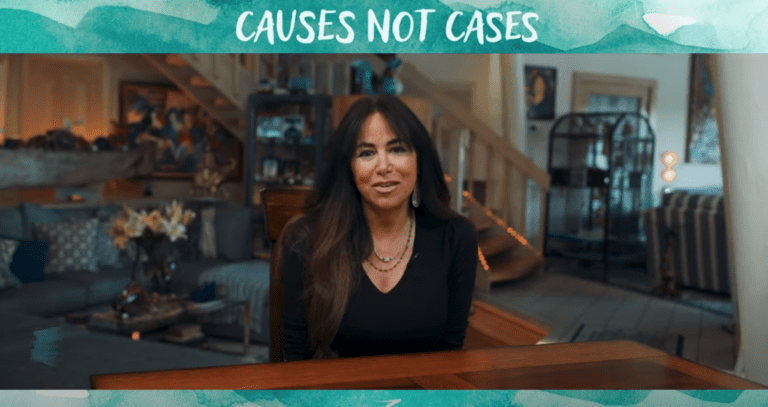No matter how tough you are, a truck accident can be so frightening you might refuse to look if you pass one on a California highway. Trucks cause extensive damage and horrific injuries. It’s understandable if you refuse to acknowledge the destruction and carnage… but perhaps you shouldn’t. When you witness the after-effects of a truck accident, you can better understand what can happen and how terrible it can be when a truck is involved in a collision.
Compared to private passenger drivers, truckers have far fewer accidents. However, when they do crash, the truck’s weight combines with speed to create an extremely damaging impact. When a large truck hits a car, the occupants have limited protection. Seat belts, shoulder harnesses, and steel-reinforced doors can’t protect passengers from a force that’s capable of crushing a car’s roof. Injured victims deal with traumatic brain injuries, spinal cord injuries, crushed bones, multiple fractures, and other serious and catastrophic conditions.
When you share the road with truckers, it’s important to have a working knowledge of the types of accidents large trucks cause. When you know more about truck accidents, the knowledge prepares you to understand possible accident outcomes. It also helps you plan a few strategies to help you avoid them:
- Implement defensive driving strategies
- Be more aware of truckers and their actions
- Keep a cushion of space between you and them
- Explain an accident using clear and concise terms
If you’ve never seen or been in a truck accident, you should be aware that there are multiple accident scenarios. If you think of truck accidents in terms of high-speed tractor-trailer crashes on the highway, you may be surprised to know that large truck accidents occur on city, suburban, and rural roadways as well.
Large Trucks Cause More Damage and Injuries
A truck’s weight is what defines it as “large.” Large trucks have a gross vehicle weight rating of 10,000 pounds or more, a weight that’s usually two to three times that of most private passenger vehicles. The large truck category includes the tractor-trailer rigs you see hauling flatbeds or cargo-filled trailers on the highway. Dump trucks, garbage trucks, large tow trucks, delivery trucks and a few non-commercial, medium to heavy-duty pickups are also included in the heavy truck category.
Heavy large trucks have a GVWR that begins at 26,000 pounds. The most recent National Highway Transportation Association Traffic Safety Facts publication confirms that weight is a factor when a truck crash occurs. Tractor-trailer rigs weighing more than 26,000 pounds caused 79 percent of the fatal accidents involving large trucks. When a heavy tractor connects with a fully-loaded trailer, the weight can legally soar to 80,000 pounds.
Large trucks easily outweigh the majority of the vehicles on the road. The weight advantage gives truck drivers an added layer of protection during a crash. For passengers in smaller vehicles, the weight makes them victims. When a large truck or heavy large truck crashes into a smaller vehicle, serious and catastrophic injuries are often inevitable.
The Nine Ways in Which Large Truck Accidents Take Place
Just like auto accidents, large truck accidents occur under many circumstances. Because there are so many different types of large trucks, the incidents vary in severity and damage. A large truck accident can start with a simple driver error. A driver often causes accidents when he makes an improper lane change, an inappropriate turn, or when he fails to brake on time.
When a large truck is involved, a minor mistake often ends with tragic outcomes. A large truck’s weight is a major factor in how much damage it causes. Trucks may cause extensive damage even at low speeds speed. As the speed increases, so does the potential for damage.
1. Rear-End Impact
Large trucks need more time and space to brake than a private passenger vehicle. A large truck driver must pay attention to his surroundings so that he allows himself plenty of time to stop when necessary. Truckers must also maintain an assured clear distance from the traffic in front of them. Based on research by the Insurance Institute for Highway Safety, when a rear-end impact occurs, rear-seat passengers aren’t as well-protected as front-seat passengers. During a rear-impact, seatbelts often constrict a rear passenger’s chest and cause injuries. Some passengers sustain head injuries when a rear impact forces their heads into the back of a front seat. The force and weight of a large truck increase the potential for even more serious injuries.
The publication 2017 Large Truck and Bus Crash Facts documents 94 fatal crashes, 9,000 injury crashes, and 24,000 property damage only crashes caused by truckers striking private passenger vehicles in the rear. The report also describes accidents where passenger vehicles rear-ended large trucks.
These encounters caused 375 fatal crashes, 8,000 injury crashes, and 22,000 property damage only crashes. It’s important to note that when a private passenger vehicle rear-ends a tractor-trailer, the lack of underride guards allows smaller vehicles to travel under a large truck’s body. This sometimes causes a shearing motion that crushes or nearly removes the smaller vehicle’s roof, and causes its occupants serious or catastrophic injuries.
In discussing rear-end accidents, it’s important to mention that truck and car manufacturers are including front-end detection systems as an option in many new vehicles. These have proven instrumental in preventing rear-end accidents.
2. Trucker Runs off the Road/Out of Lane
When a truck “runs out of road” it doesn’t have to cause an accident. Think in terms of a driver trying to force his way into the stream of traffic on a highway entrance ramp. The incident may end without an accident if the trucker maintains control or another driver relinquishes his lane. If the trucker overcompensates for his bad driving, he might side-swipe your car, run off the side of the road, or force you into the grassy median. He might also lose control and overturn on the side of the road.
Truckers run off the road or out of their lanes for several reasons.
- Distracted driving
- Impairment due to one or more reasons
- Speeding
- Poor driving skills
3. Sideswipes
Truckers sometimes sideswipe your car when they make a faulty move while traveling in the same direction and in an adjacent lane. They also cause sideswipes when they enter your lane while traveling in the opposite direction.
Trailer underride also comes into play when a truck sideswipes a smaller private passenger vehicle. This occurs when the area between the pavement and the underside of the trailer provides enough clearance for a smaller vehicle to roll underneath. Without an underride guard in place, a sideswipe accident sometimes causes extensive damage to a vehicle’s roof and upper body. When this happens, vehicle occupants often sustain serious or catastrophic injuries.
4. Rollovers
The FMCSA cites rollover as a factor in 4 percent of fatal accidents involving a large truck. It’s also a factor in 3 percent of large truck crashes with non-fatal injuries. While several adverse circumstances come together to allow a rollover to occur, improperly loaded or secured cargo is often a critical factor.
When a shipper or a loading contractor improperly load cargo onto a trailer or a flatbed, the cargo sometimes shifts or slides during transit. This often occurs when a trucker is speeding, suddenly accelerating or decelerating, or making an improper or sudden turn or maneuver. A sudden shift in cargo weight makes a trailer unsteady. Improper corrective actions can make a rollover a stronger possibility.
FMCSA Cargo Securement rules provide guidelines that help minimize the chances of a cargo shift contributing to a rollover.
5. Turning into Another Vehicle’s Path
Trucks sometimes cause accidents when the driver is performing a simple maneuver such as making a left or right turn at an intersection or exiting a parking lot—27 percent of all truck-related fatal accidents occur at intersections. They’re preventable, but occur for several reasons.
- Driver distraction or inattention
- Driver impairment
- Improper training
- Improper vehicle operation
- Weather or pavement conditions
When a truck crashes while making a turn into the path of another vehicle, the force of the impact and the location of the damage often vary based on vehicle speed and driver response. Because of the disparity in vehicle size, weight, and height, the smaller vehicle often sustains significant damage. If a trucker begins a turn without noticing an oncoming vehicle, a crash often becomes inevitable. With a large truck, its extended stopping distance prevents the driver from making a sudden stop. A truck’s size prevents a driver from making an easy correction once he begins a turn or other maneuver.
6. T-Bone or Side Impact
Many broadside, T-Bone, and side-impact crashes also occur at intersections. As with other intersection accidents, these impacts occur due to inattention when crossing through or entering an intersection. They also occur when a trucker can’t stop once he notices another vehicle.
Side impact crashes cause significant injuries as the point of impact is so close to the rear passengers. Because of the mismatch in vehicle size, when a large truck strikes a smaller vehicle’s side, the impact sometimes breaks side windows, causes intrusion of exterior metal parts, and crushes sections of a vehicle’s roof.
7. Head-On Collisions
Large trucks were involved in 416 head-on fatal collisions during 2017. FMCSA data shows that 36 of these events occurred when a truck crossed over the median or center-line. When a head-on collision occurs, it means the driver fell asleep, became distracted, or simply lost control of his vehicle.
When vehicle manufacturers redesign their safety enhancements, most involve front end upgrades. Depending on a truck’s speed and weight, a smaller car is unlikely to avoid major damage in a head-on collision; however, these protections can help mitigate some of the potentially-fatal harm to passengers.
8. Jackknife Accidents
Jackknife accidents occur when a trucker stops suddenly, his load shifts, or he makes some other improper maneuver. The trailer begins to slide sideways. If a trucker tries unsuccessfully to correct the motion, the trailer often continues sliding. The tractor-trailer rig shifts to form the shape of an open jackknife.
Jackknife accidents occur with or without involving other vehicles. If the driver comes to a stop safely and doesn’t damage his truck or lose a load on the highway, he can often regroup, straighten up his rig and move on. When a jackknifing involves vehicles in nearby lanes, it sometimes causes extensive damage and serious injuries just like any other large truck accident.
9. Objects in the Road
When a driver has issues with load securement, he may lose some of his transported goods in the roadway. If the trucker clears up the dropped objects immediately, his problem often causes more traffic confusion than damage. During congested traffic or night time travel, visibility becomes a factor. Goods dropped on the highway sometimes create hazardous circumstances. They sometimes cause multiple collisions when vehicles fail to notice them. Dropped goods also cause damage and accidents when they fall into oncoming traffic and on top of vehicles.
Lost loads often occur with dump trucks. It’s difficult for a trucker to properly tarp and cover a truck full of sand, gravel, dirt, or other loose loads. When a truck loses sand or gravel, it usually spreads across a roadway and creates hazards for multiple vehicle drivers. When an event such as this occurs, it can cause pile-ups, single-car crashes, and injuries in every car involved.
Discuss Your Truck Accident With a Personal Injury Lawyer
When you’re seriously injured in a truck accident, it’s important to focus on your treatment and recovery. You should work with a legal representative while you concentrate on healing. It’s important to find an attorney with the experience and the resources to deal with insurance companies and commercial trucking companies.
No matter how a truck accident occurs, the circumstances and injuries are often complicated and difficult to evaluate. You need to understand your rights so you can prevent negligent parties from taking advantage of your willingness to deal with them directly.
Consult a truck accident attorney as soon as possible after your truck accident. Attorneys intervene on your behalf with insurance company contacts and liable trucking companies. the legal assistance at the Gomez Trial Attorneys can answer your questions and help you understand what you must do to protect your financial interests and your legal rights.







